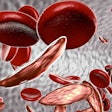
This article has been updated with comments from the Centers for Medicare & Medicaid Services (CMS).
Almost all participants in a recent survey said they believe it is important to have Medicare coverage for noninvasive tests to routinely monitor transplant rejection.
The survey, conducted by transplant patient organizations, included people impacted by kidney, heart, lung, and liver transplants; it was implemented after the release of a Medicare billing and coding article related to MolDX molecular testing for allograft rejection.
The MolDX, or molecular diagnostic services, program was developed by Palmetto GBA in 2011 to identify and establish coverage reimbursement for molecular diagnostic tests.
According to the recent survey, 98% of the patient participants said it is important to have Medicare coverage, and 95% are concerned that the billing article limits coverage for noninvasive post-transplant tests. Furthermore, 95% of patient participants in the survey said they believe that reduced coverage for noninvasive tests would negatively impact their post-transplant care.
The survey, which was fielded by the Transplant Life Foundation, Trio, Transplant Families, and the HeartBrothers Foundation, resulted in almost 1,200 responses from patients as well as some caregivers and family members.
The Medicare billing article restricts coverage of noninvasive post-transplant diagnostic tests such as donor-derived cell-free DNA and gene expression profiling, which are routinely used instead of tissue biopsies to monitor a patient's transplanted organ health and immune status, the transplant organizations said.
The article does not pose restrictions or changes to coverage of more-invasive, costly biopsies, they noted, adding that the billing article also went into effect only 30 days after its release and without appropriate procedures for changing coverage policy, including incorporating patient input and a public comment process.
"We had immediate concerns about Medicare making coverage changes to post-transplant care without understanding the serious impact to patient lives," Bill Ryan, president and CEO of the Transplant Life Foundation, said in a statement. "The results of this survey allow us to voice transplant patient concerns in the absence of having an official forum with MolDx to do so."
"Access to safe, comprehensive healthcare is a top priority and responsibility for [CMS]," a CMS spokesperson said in an email. "CMS is committed to ensuring transparency of Organ Procurement Organization (OPO) information and establishes Conditions for Coverage for OPOs, which are requirements that Organ Procurement Organizations (OPOs) must meet to be able to receive payments from the Medicare and Medicaid programs."
The spokesperson explained the origin of billing and coding articles, saying that the 21st Century Cures Act required the Medicare Administrative Contractors (MACs) to develop evidence-based Local Coverage Determinations (LCDs). The MACs use a Billing and Coding Article to implement an LCD.
"Advantageous for everyone, having codes and billing instructions within the implementation article allows the MAC to make routine billing and coding changes that do not affect the reasonable and necessary criteria of the LCD policy without going through the entire LCD development process," the spokesperson said, adding that the process allows for "the most up to date billing and coding to be available to the public in a more tenable time frame.
"In this instance, the MAC updated the Billing and Coding Article (A58019) to educate and try to provide better clarity of the intended use of the test outlined within the related LCD, helping people to file correct claims to receive payment. CMS believes the MAC is within its authority to update the Billing and Coding Article, which does not require a comment period. Should an interested party wish to change the reasonable and necessary policy requirements in the LCD, there is the formal LCD reconsideration process, and CMS encourages the public to reach out and engage their MAC in this process."



















